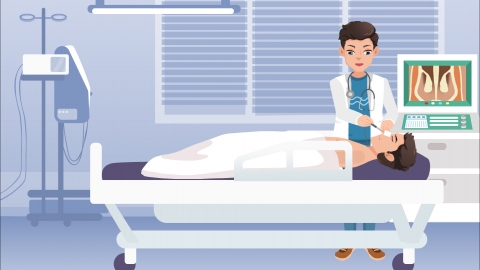Is surgery required for a 14mm gallstone?
Generally, whether a 14mm gallstone requires surgery depends on a comprehensive assessment of the patient's specific condition, symptoms, risk of complications, and overall health status. If symptoms such as abdominal pain or fever occur, prompt medical evaluation is recommended. Detailed analysis is as follows:

If a 14mm gallstone does not cause symptoms such as biliary colic or cholecystitis, and the patient has no risk factors for complications—such as diabetes or gallbladder polyps—and maintains good overall health, surgery may be temporarily avoided. In cases where the stone remains stable over time without impairing gallbladder function, regular ultrasound monitoring combined with dietary adjustments—particularly reducing intake of high-fat foods—can help maintain an asymptomatic state, making immediate surgical intervention unnecessary.
However, if a 14mm gallstone frequently triggers biliary colic, has already caused cholecystitis, poses a risk of bile duct obstruction, or if the patient has underlying conditions such as diabetes or poor general health, surgical treatment should be considered. Such stones may continuously irritate the gallbladder, leading to recurrent inflammation. Delaying treatment could result in serious complications such as pancreatitis or gallbladder perforation, posing significant risks to health.
After detection of a 14mm gallstone, regular abdominal ultrasound examinations are necessary to closely monitor changes in the stone’s position and the condition of the gallbladder wall. Maintaining regular meal times, avoiding overeating or prolonged fasting, can reduce the likelihood of stone movement causing discomfort. If severe right upper abdominal pain, fever, jaundice, or similar symptoms develop, immediate medical attention is essential. Do not self-medicate with painkillers to mask symptoms, as this may delay proper diagnosis and treatment.






